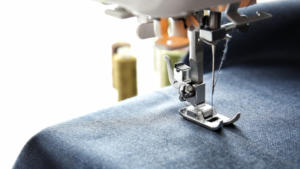Last Updated on September 15, 2021
It can be overwhelming to shop for a sewing machine, especially if it’s your first time doing so and you don’t have much sewing experience. Since you’re reading this post, I assume that you need help choosing the right sewing machine.
Whether you are buying one as a gift or for yourself, there are many things to consider. Among those is its type of use, the kind of fabric you will work on, your sewing experience, budget, and the specific features you want it to have.
Choosing a sewing machine that fits your needs makes sewing more enjoyable. Since high-quality sewing machines are not cheap, you want to invest in one that you can use for a long time. Continue reading this guide to help you narrow down your options.
How To Choose The Right Sewing Machine For You
Below are among the common factors you need to consider when choosing a sewing machine:
1. Type Of Use
Sewing Machines For Domestic/Home Use
If you’re buying a sewing machine that you can use at home, make sure to choose one that has a low-noise operation.
The different types of sewing machines for home use are electronic sewing machines, mechanical types of sewing machines, computerized or automated machines, quilting machines, embroidery machines, and overlocker or serger machines.
Most of these sewing machines are easy to operate and are cheaper compared to industrial sewing machines.
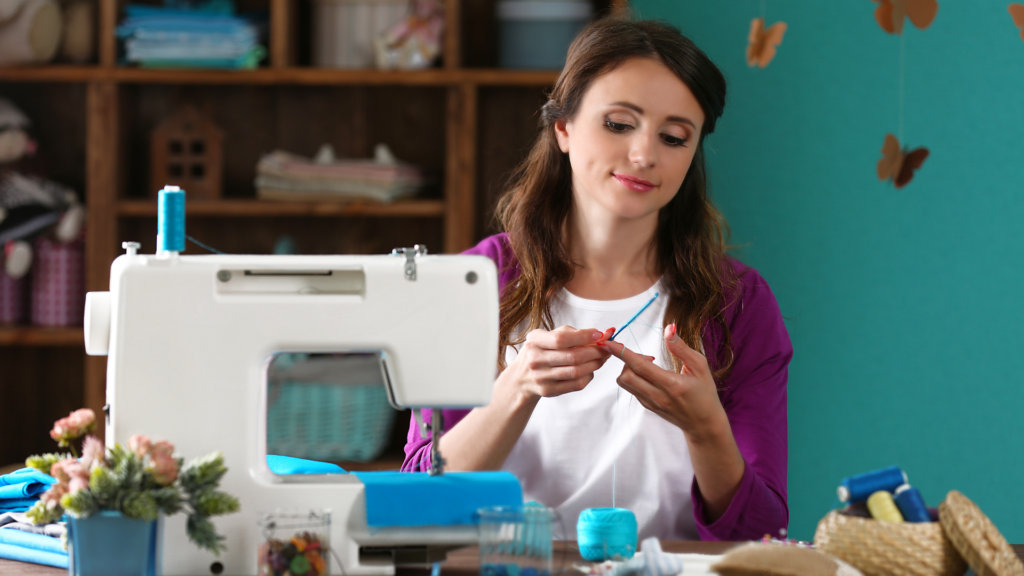
Sewing Machines For Industrial Use
Industrial sewing machines operate with much stronger and powerful motors.
They are significantly larger compared to standard sewing machines too. It allows them to sew multiple layers of fabrics and heavy materials such as denim and wool. They also feature faster sewing speeds.
Most industrial sewing machines also come with a wider table that lets you work comfortably. You can take advantage of this feature when quilting and working with other larger projects.
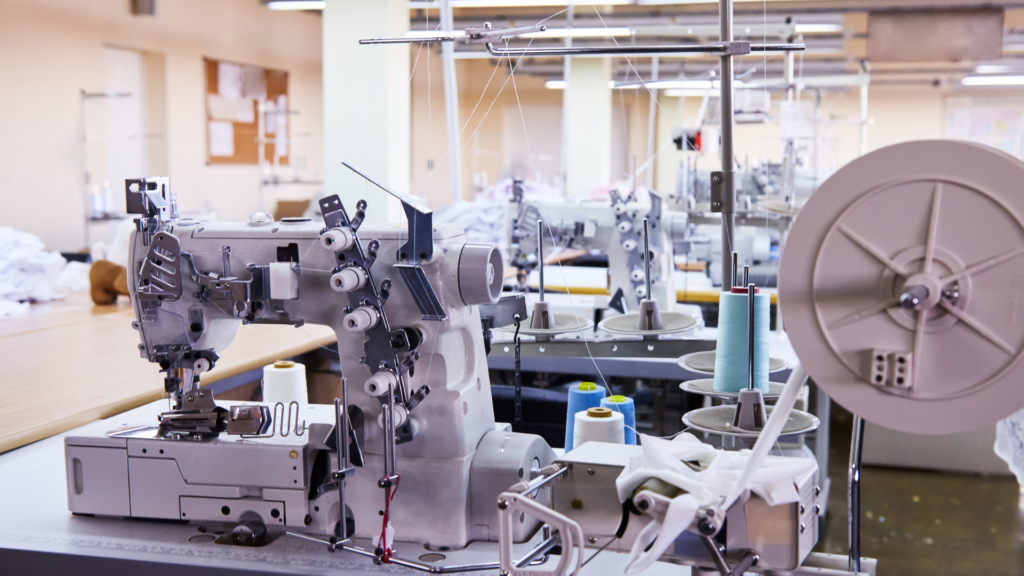
2. The Fabric You Will Work On
- Light – Chiffon, linen, silk, and crepe are among the most common lightweight fabrics sewers use. While you can pretty much utilize any kind of sewing machine to sew these types of fabrics, you would want to choose one that has excellent speed control. Also, look for a sewing machine that offers more types of built-in stitches.
- Medium – The most common medium-weight fabrics are velvet, charmeuse, taffeta, sateen, polyester, chambray, chino, jersey, and nylon. Like lightweight fabrics, you can use most sewing machines to sew medium-weight fabrics. Only make sure to use the right needle. Choose a sewing machine that utilizes a universal needle with size 80/12 or 90/14.
- Heavy – The case is different when most of your sewing projects involve thick, heavy fabrics. You will need a heavy-duty sewing machine that provides stable sewing operation, speed control, and high presser foot. The most common heavy fabrics used in sewing are denim, canvas, wool, faux leather, leather, etc.
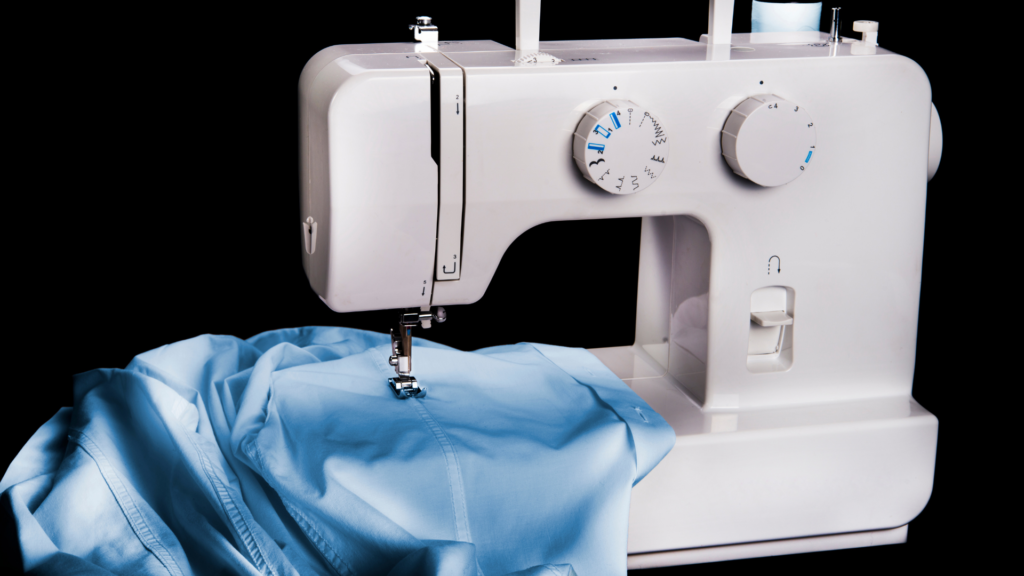
3. Your Level Of Sewing Experience
Beginner
If you’re a beginner in sewing, a sewing machine that makes zig zag and straight stitches are enough to get you started. Also, choose a sewing machine that doesn’t integrate complex functions and features, like most industrial sewing machines.
It is best to invest in a sewing machine with a simpler operation when still learning the basics of sewing. This way, you can get familiar with its functions and focus on improving your stitches. For example, choose a sewing machine that offers a one-step buttonhole. It will allow you to finish a buttonhole in a single step.
Professional
For professionals looking into a new sewing machine to add to their arsenal, one with a broader variety of pre-programmed stitch types is ideal. A high-end industrial sewing machine is also the first thing that comes to mind when buying for professional use.
Most industrial sewing machines provide various functions and features that allow faster and high-quality sewing results. While some sewers find them difficult to operate, professional users will definitely enjoy the advantages of their complex operation.
4. Your Budget
Expensive Sewing Machines
Some say that if you want to have a good sewing machine, you should invest in an expensive one. However, this isn’t always the case as many affordable sewing machines provide almost the same quality as the expensive ones, only without the same advanced features.
For instance, industrial sewing machines are more expensive compared to mechanical sewing machines. When buying from the expensive side of the spectrum, it is best to stick to reputable brands to ensure excellent quality.
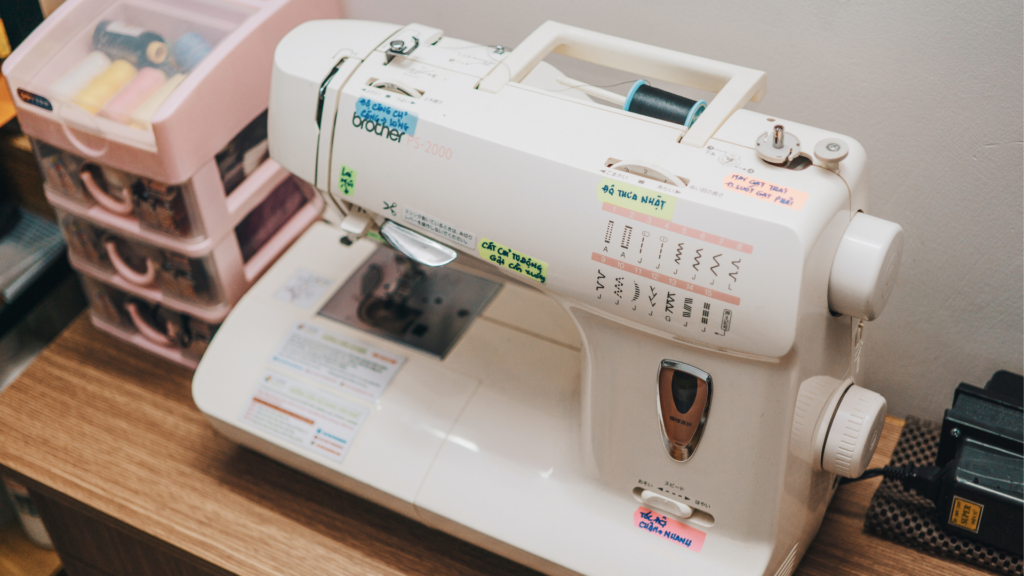
Cheaper Sewing Machines
If you have a limited budget, choose sewing machines with simpler features. Models that are made of plastic frames are also cheaper compared to those with metal frames. However, your budget should not be your primary requirement when choosing a sewing machine. Never compromise the quality of your projects with cheap and inefficient ones.
Some Final Words…
To sum it up, you should base your choice of sewing machine primarily on where you want to use it, what type of fabric you will work on, and your level of sewing experience. While your budget also counts when buying a sewing machine, it should not be the main factor you consider when making a purchase. Getting the right sewing machine will allow you to have a better sewing experience and produce high-quality projects. I hope this guide helps you choose a sewing machine that you can enjoy for many years.

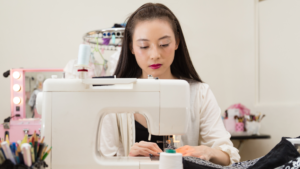
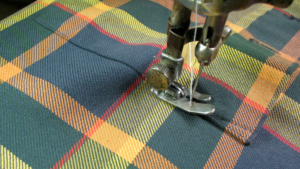
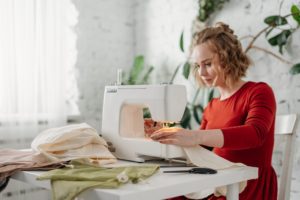
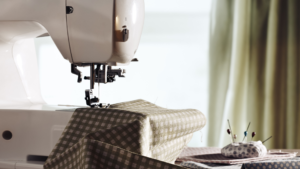
![Read more about the article How To Thread A Sewing Machine Needle Easily [2023]](https://www.sewkitkit.com/wp-content/uploads/2021/09/threading-a-needle-2-300x169.png)
